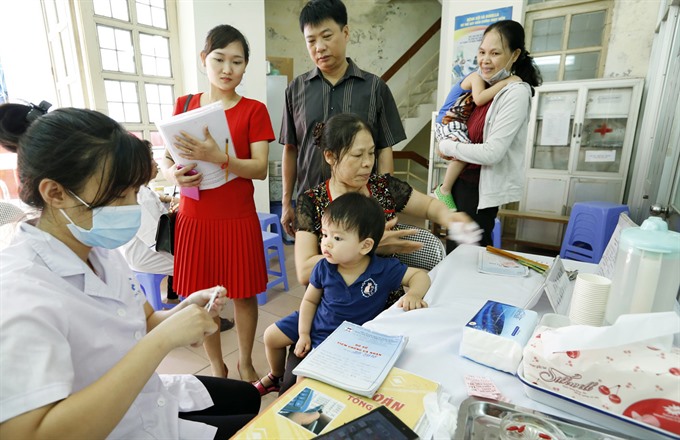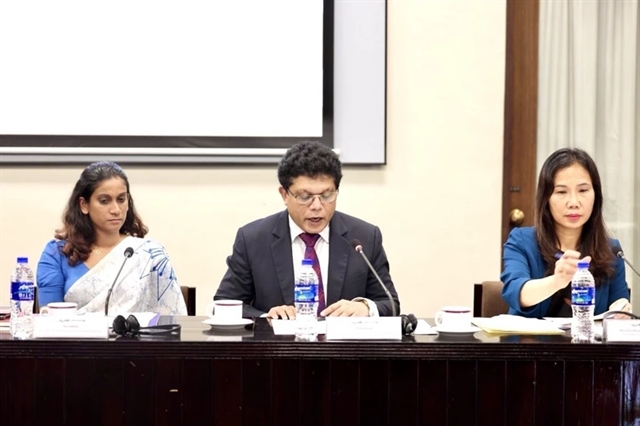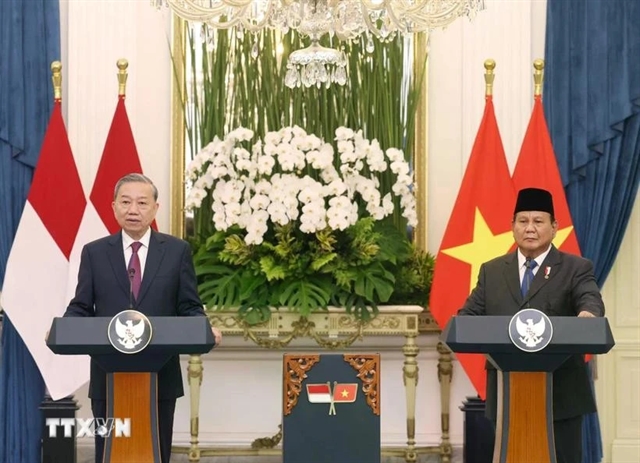

Deputy Prime Minister Vũ Đức Đam has conceded that while the Government keeps stressing the importance of grassroots healthcare stations, people don’t have much faith in them.
 |
| A nurse administers vitamin A to a young patient at Hai Bà Trưng District’s Thanh Nhàn Ward in the capital city. — VNA/VNS Photo Dương Ngọc |
HCM CITY — Deputy Prime Minister Vũ Đức Đam has conceded that while the Government keeps stressing the importance of grassroots healthcare stations, people don’t have much faith in them.
The candid concession came during a working session the Deputy PM held with the HCM City People’s Committee on local healthcare last week.
However, Dam also stressed that privatisation of healthcare facilities in the country was not the answer.
While he was in HCM City, the Deputy PM Dam visited two ward-level healthcare stations in the city and found major disparities between them.
One of them, in Ward 11, District 13 was outfitted with latest equipment and capable staff, but the other, in Ward 16, District 4 had outdated equipment and infrastructure.
Officials attributed the ‘stark’ difference to the fact that the former was a good example of the public-private partnership (PPP) model, while the latter was almost solely dependent on State Budget allocations.
The clinic in Ward 11 also functioned both as a traditional health station and a general medicine facility.
Võ Khắc Thái, Chairman of the District 3 People’s Committee, said that out of 20 private firms that they’d contacted, VietAnhMed Co.– specialising in manufacturing and trading medical equipment – was the only company that had agreed to invest in this “difficult market.”
The company said it was willing to accept losses for the first few years and begin to earn profits in 10 years, Thái said.
Nguyễn Thành Long, Deputy Minister of Health, said 50 per cent of the 12,000 healthcare stations in the country had to be upgraded or rebuilt.
He said that the lack of public confidence in these healthcare stations had driven most patients to central-level hospitals in major cities, causing constant overload.
This fact also discouraged businesses from investing in such stations, he said. He praised the involvement of private sector in healthcare and said it should be encouraged.
The Deputy PM, however, urged caution, saying international health advisors were against the privatisation of healthcare in Việt Nam.
“The goal of the private sector, understandably, is profit. If the public health facilities are privatised, social welfare beneficiaries might not receive due attention,” Đam added.
“If we want to push the co-operation between public and private sector, then it must be based on a non-profit spirit,” he said.
He explained that the non-profit approach he advocated did not mean doing everything for free, but using profits to reinvest and expand.
Responding to concerns about privatisation, Phan Quốc Việt, VietAnhMed’s representative, said his company’s profits will go towards upgrading equipment and infrastructure upgrades, capacity building for staff, and expanding into a ‘chain’ of health stations in other districts in HCM City.
“The public must benefit from the PPP model. They should be able to receive better services at an affordable price. The money made from people with more financial means will be used for reinvestment,” Đam said.
Nguyễn Tấn Bỉnh, Director of the municipal Department of Health, there are 319 health stations at the ward and commune levels in the city.
Despite considerable efforts by city authorities, these health stations have not met expectations in delivering quality primary healthcare.
This prompted the city to implement on a pilot basis the PPP (Public Private Partnership) healthcare model, he added.
The aim is to improve grassroots level healthcare and alleviate pressure for centrally administered hospitals, he said.
Bỉnh said the city would conduct a thorough examination of the effectiveness of the pilot model after a certain period to see if it was a “right way forward” for the health sector. — VNS









